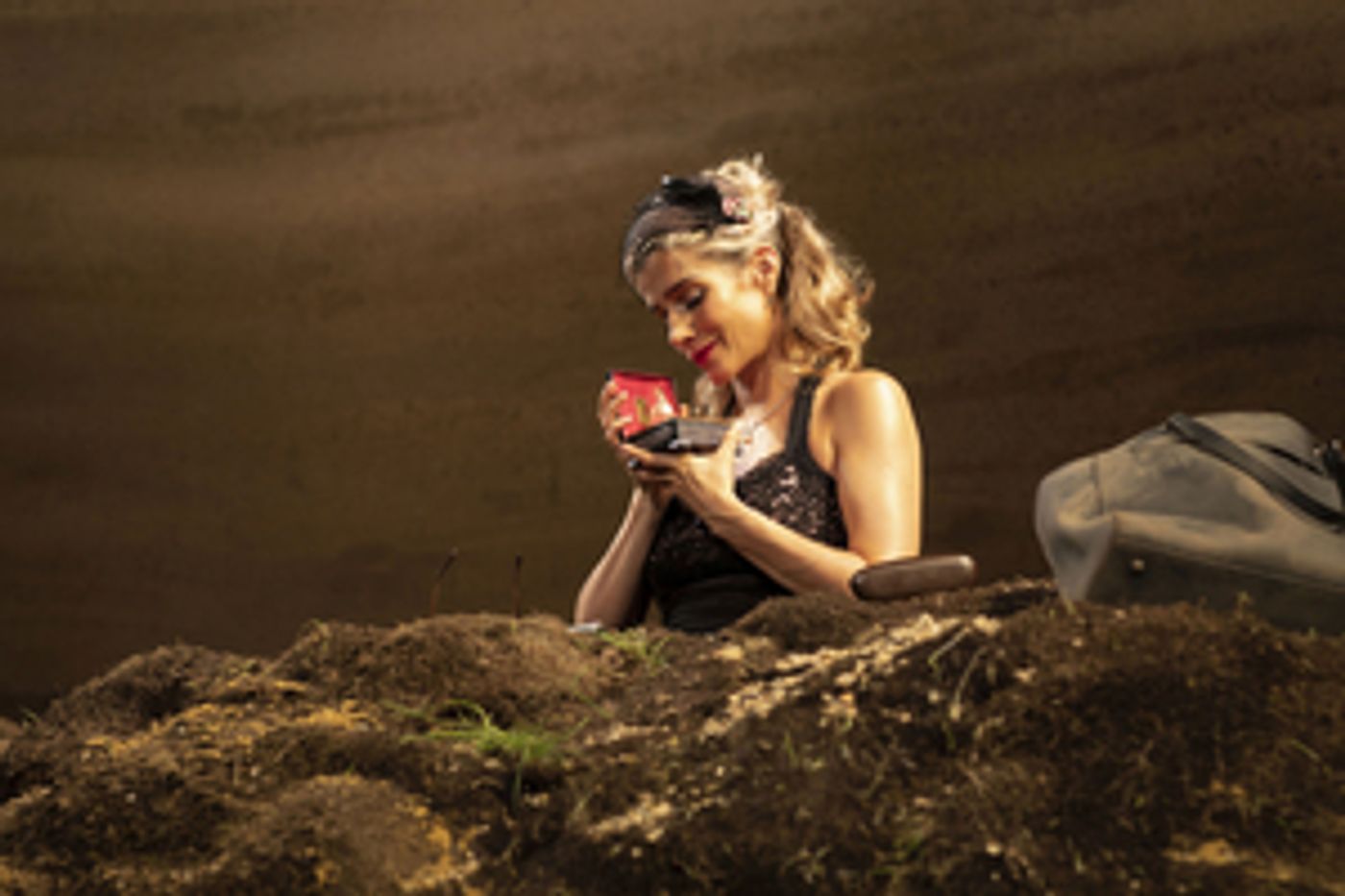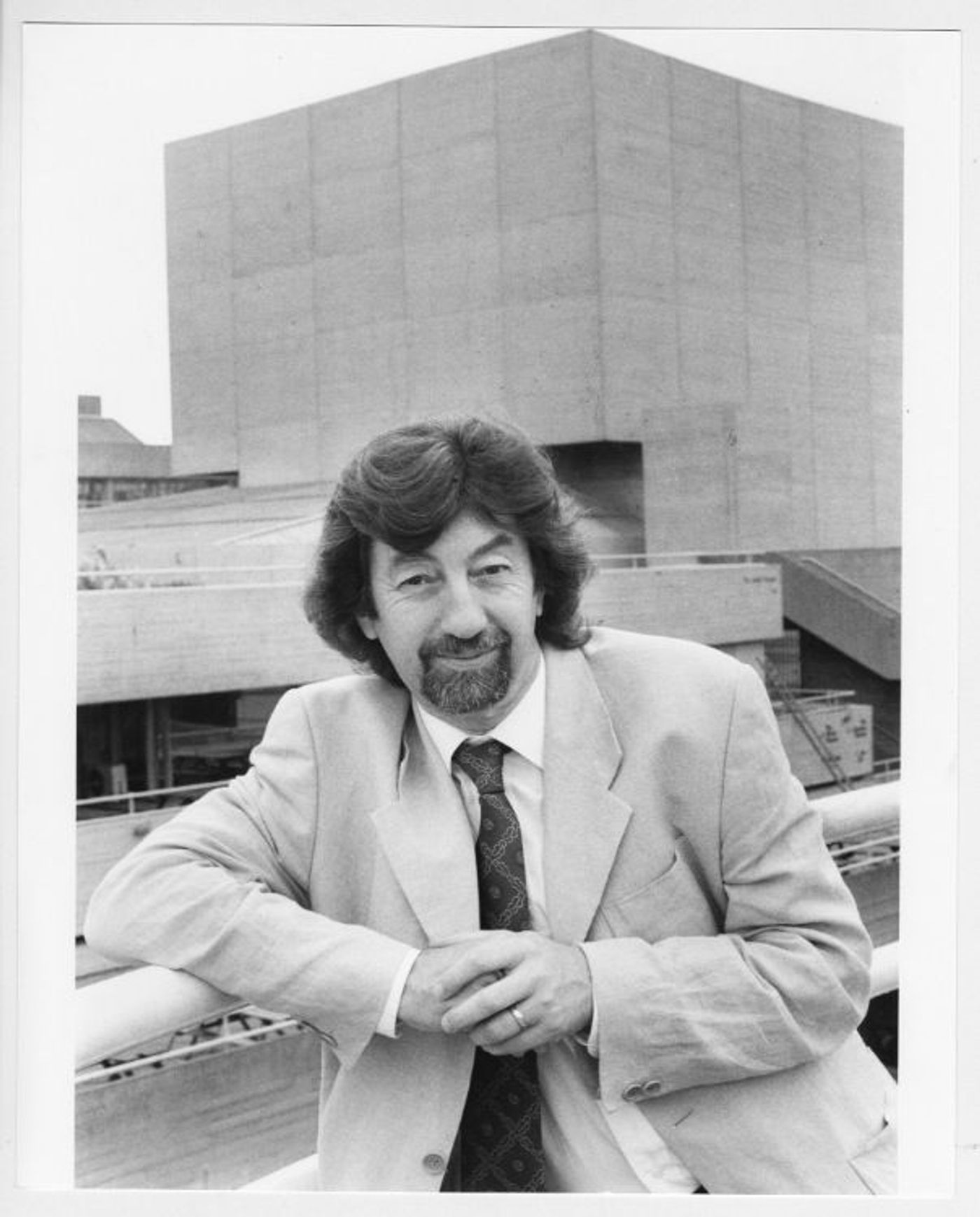These are `Happy Days' Indeed for Trevor Nunn
The director's latest production caps decades of distinguished achievement
 There's no denying the visceral power of Lisa Dwan, the Irish actress at the tremulous heart of the brilliant new London revival of Happy Days, at the Riverside Studios. But this 60th anniversary production of Beckett's masterwork is indistinguishable from the keen eye of its director, Trevor Nunn, who across more than six decades has contributed many of the most significant (not to mention quite a few of the best) productions in my experience. Many will know his output from the world-beating success of such musicals as Cats and Les Miserables (the latter co-directed with John Caird), and I regret to this day never having been able to see his era-defining Macbeth, with Judi Dench and Ian McKellen, or his and Caird's original Royal Shakespeare Company Nicholas Nickleby live onstage: thank heavens both are preserved on film (see Macbeth below).
There's no denying the visceral power of Lisa Dwan, the Irish actress at the tremulous heart of the brilliant new London revival of Happy Days, at the Riverside Studios. But this 60th anniversary production of Beckett's masterwork is indistinguishable from the keen eye of its director, Trevor Nunn, who across more than six decades has contributed many of the most significant (not to mention quite a few of the best) productions in my experience. Many will know his output from the world-beating success of such musicals as Cats and Les Miserables (the latter co-directed with John Caird), and I regret to this day never having been able to see his era-defining Macbeth, with Judi Dench and Ian McKellen, or his and Caird's original Royal Shakespeare Company Nicholas Nickleby live onstage: thank heavens both are preserved on film (see Macbeth below).
Sure, Nunn has misfired on occasion, as one might expect by the time you have clocked up countless plays, operas, and films and are still going strong, age 81. His Theatre Royal, Haymarket, Fatal Attraction remains a head-scratcher, and few who saw it will forget Gone with the Wind , which was gone before long from the same theatre that had previously premiered Cats. But those anomalies pale next to Nunn's many and varied successes with Stoppard and Shakespeare, Andrew Lloyd Webber and Rodgers and Hammerstein. His Menier Chocolate Factory A Little Night Music led from south London via the West End to Broadway, and his work with Beckett includes not only the current, and career-capping, Happy Days, but an esoteric radio play, All That Fall, which Nunn shepherded from a 70-seat basement venue in London (the Jermyn Street) to 59E59 Theaters in 2013 in New York, its mighty duo of Michael Gambon and Eileen Atkins along for the ride. Among other shows of his that have stayed with me, in some instances for decades, are the quintet indicated below.
All's Well That Ends Well, Martin Beck Theatre, Broadway, 1983
Nunn was riding high from the Broadway opening the previous year of Cats when the onetime director of the Royal Shakespeare Company brought to New York something entirely different: a rare sighting of a so-called "problem play" from the Bard that seemed to make perfect, if proocative, sense of a supposed comedy centering on a young couple, Helena and Bertram, who don't necessarily appear to be made for one another as per the time-honoured conventions of the comic genre. This All's Well wasn't a commercial success - Shakespeare esoterica is a hard sell anywhere - but I vividly recall the finely tuned Chekhovian shimmer that Nunn brought to the text, and its ravishing performances from Stephen Moore, Harriet Walter, and the great Margaret Tyzack, who went on to win her own Tony seven years later for Peter Shaffer's Lettice and Lovage.
Arcadia, National Theatre, London, 1993

photo c. John Haynes/National Theatre Archives
I don't know that I will ever forget going early the day of the opening of Arcadia in April, 1993, to collect an advance copy of what at the time was Tom Stoppard's latest so as to be able to review it accurately and authoritatively overnight. Overwhelmed by what on the page seemed comparatively dry, I was undone that same evening by the crystalline pungency, and aching heart, of Nunn's approach toward what to this day remains my favourite Stoppard play. Since its debut, volumes have been written in dissection of a play set across two time periods that fuse in time for the dance, both life-enhancing and mournful, that marks out the play's final passage. Suffice it to say that Emma Fielding, as the wildly precocious teenage Thomasina, and Rufus Sewell, as her dashing and sympathetic tutor Septimus, constitute a double-act for the ages. The play was recast for its Lincoln Center transfer (see trailer below) but that first National iteration under Nunn's careful guidance was and remains a thing of beauty, indeed. (Nunn, meanwhile, went on to run The National Theatre from 1997-2002.)
Oklahoma!, National Theatre, London, 1998
Nunn's longstanding participation in the rise and rise of the British mega-musical meant that he was so stranger to a form in which many of his generation (the venerable Peter Hall, for instance) had far less success. the 1980s in particular led Nunn from Cats through to Starlight Express, Les Mis, Chess, and Aspects of Love, leading into the next decade and Sunset Boulevard and, a decade later, The Woman in White. But Nunn's stewardship of the National allowed for two transformative revivals of Rodgers and Hammerstein classics Oklahoma! and South Pacific, both of which wedded his keen attention to the text to a showmanship that, in the case of the first show, introduced Hugh Jackman to British audiences and made an Olivier and Tony-winner out of Shuler Hensley, as Jud Fry. The aim here wasn't to impose some sort of governing concept but, rather, to treat this depiction of a pioneering America with dignity, intelligence and respect, not to mention, via his vaunted collaborator, the choreographer Susan Stroman, good old-fashioned Broadway knowhow.
Flare Path, Theatre Royal, Haymarket, London, 2011
Terence Rattigan's 1942 play set in the lounge of a Lincolnshire hotel as war rages in the world not all that far beyond boasted a stellar case in Sienna Miller, James Purefoy, and Sheridan Smith, who won her second Olivier Award in as many years for her heartstopping performance as a former barmaid worried about the fate of the Polish officer whom she has recently married. Often known for productions that take their time, Nunn deployed three hours to scintillating effect so as to chart the shifting currents of feeling and apprehension amongst a cross-section of society that was acted by the ensemble of one's dreams. (Among them was Harry Haddon-Paton, who went on some years later to play Henry Higgins at Lincoln Center in another musical classic, My Fair Lady, on which Nunn had previously left his mark.)
Happy Days, Riverside Studios, London, 2021
A Beckett two-hander featuring an immobilised heroine might seem worlds removed from the large-scale landscapes that have fueled Nunn's work, whether in his seismically moving Porgy and Bess for Glyndebourne - an operatic achievement for the annals - or across all the capacious musicals, not to mention Shakespeare plays, that he has directed. (His A Midsummer Night's Dream in Ipswich in 2016 represented a return to the director's boyhood roots in Suffolk and also the completion of a lifelong goal of his to direct every Shakespeare play in the canon.) But as if bringing a cumulative wisdom to the task, Nunn helped Dwan and her colleague, Simon Wolfe, locate a range of emotion, from the chipper to the devastating, that I've not seen equalled in Beckett's 1961 play, its ironic title as evident as ever alongside a galvanic power sounded by the bells that go off throughout the performance. Pay attention, these bells are there to remind us, and for every ravishing, ruminative second, you do.
Photo c. Helen Maybanks
Happy Days at Riverside Studios to 25 July
Videos

